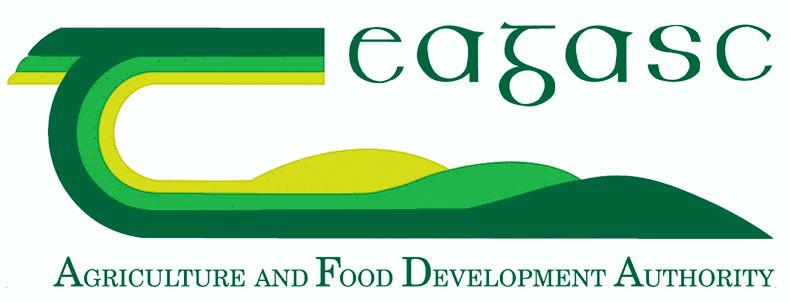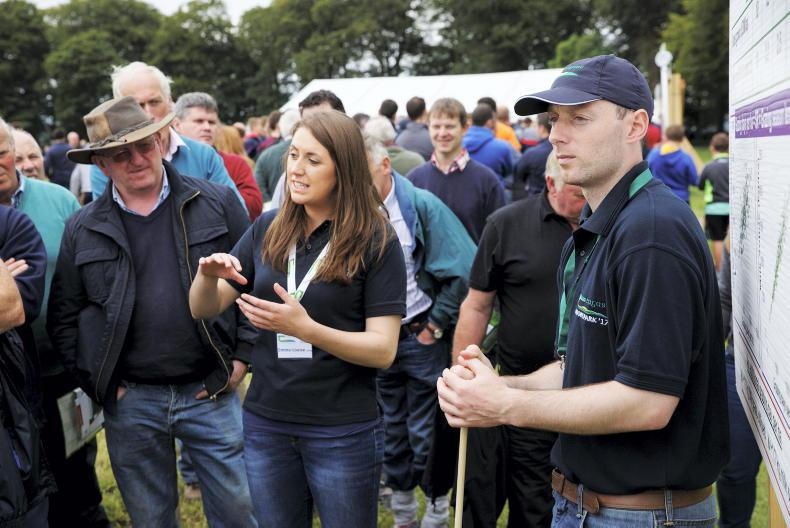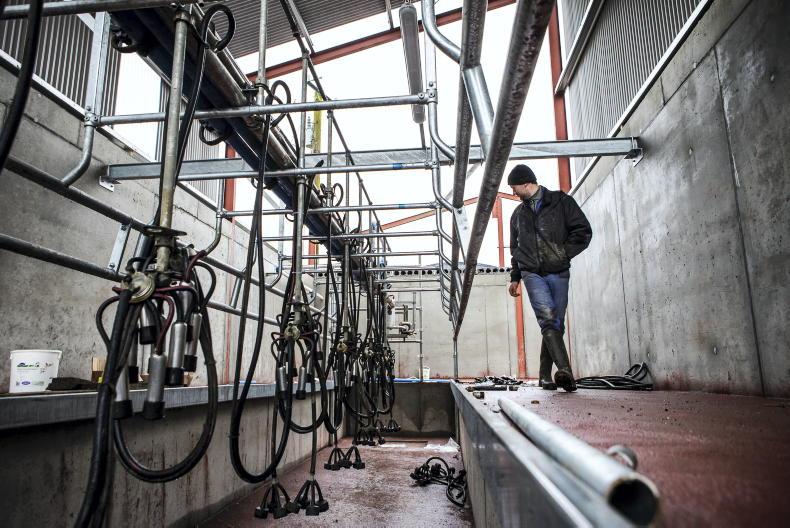The ongoing restrictions have impacted us all in different ways. For those who are currently in the planning stages of building a new milking parlour, not being able to visit other farms or have an adviser in your yard is a major disadvantage.
Virtual farmyard tours
It is always a big help to see and stand in other milking parlours before embarking on a new project.
Looking at pit depth, cluster placement and simply talking to other farmers about grazing platforms and stock choice is an important part of the design and planning process.

In the absence of visiting farms yourself, Teagasc has introduced a number of virtual educational tools across the web.
These features allow new entrants to see other working dairy farms and infrastructures, helping you to prepare a solid plan of action from the kitchen table.
Every angle covered
The virtual farm tours, which can be accessed on the Teagasc website, include a series of 360-degree photographs, permitting viewers to look around the farm and see it from almost any angle.
Within the virtual tours, each farm’s key features are highlighted. These help give viewers a better understanding on how the parlour functions.
The farm’s dimensions and building plans are included also, highlighting the size allocated to each area and the farm’s overall footprint.
There are unique ideas in each of the parlours which could be used in any new parlour
Teagasc farm machinery and milking machine specialist Francis Quigley commented on the new offering, encouraging viewers to keep an open mind when planning the parlour:
“I would encourage farmers planning a new project to have a look around each of the tours.
“There are unique ideas in each of the parlours which could be used in any new parlour.
“Another big advantage of the virtual tour is that you go back and visit the farm as often as you want to check out the finer details such as how a gate was hung or a drain is laid.”
Whether you are a new entrant starting from scratch or keen to increase your current efforts, comparing courses is always a worthwhile exercise.
“Every farm is unique and each farmer has their own preference of what works best for them, but it’s very rare that a visit to another farm will not give you a new idea or a different way of tackling a problem.
“We are confident that you will find some new ideas that you can use in your parlour, if you take the time to go through the virtual tours.”
The Dairy Edge podcast
The Dairy Edge podcast can be accessed on Spotify and is presented by dairy farm management specialist Emma Louise Coffey.

Emma Louise Coffey and Brian McCarthy give the latest lowdown on stocking rates at the Grass 10 village during the Teagasc Moorepark open day. Photo: Donal O' Leary
Listening to one episode on successful farm planning, I am engrossed by Emma Louise and Patrick Gowing (dairy farm expansion expert) as they probe important thoughts such as do I need to invest in brand new equipment or will second-hand suffice?
Central to this particular discussion is the importance of realistic budgeting and risk assessment in the planning stages.
“The next-door neighbour has 60 acres coming on stream. Many farmers consider this a no-brainer and say I’ll take that 60 acres and expand my herd.
“All form of expansion should be thought out and the risks carefully considered. While there may be an opportunity, it is not always for you,” Patrick advises.
Urging listeners to target spend in year one, the pair unite to say that this type of prioritisation will prove rewarding in later years.
“While new entrants may be tempted to source animals that is a couple of hundred euro cheaper per head, it is strongly advised to invest well in your initial stock.
“Take it as a huge opportunity to invest in the best genetics, which will stand to you for the rest of your days on the farm.”
Tune in to the Dairy Edge on Spotify to find many more educational episodes such as ‘How to minimise workload and reduce stress during the busy spring period’ and 'How to save on energy costs on your dairy farm’.
Read more
On the ground learning
Graduate opportunities await
The ongoing restrictions have impacted us all in different ways. For those who are currently in the planning stages of building a new milking parlour, not being able to visit other farms or have an adviser in your yard is a major disadvantage.
Virtual farmyard tours
It is always a big help to see and stand in other milking parlours before embarking on a new project.
Looking at pit depth, cluster placement and simply talking to other farmers about grazing platforms and stock choice is an important part of the design and planning process.

In the absence of visiting farms yourself, Teagasc has introduced a number of virtual educational tools across the web.
These features allow new entrants to see other working dairy farms and infrastructures, helping you to prepare a solid plan of action from the kitchen table.
Every angle covered
The virtual farm tours, which can be accessed on the Teagasc website, include a series of 360-degree photographs, permitting viewers to look around the farm and see it from almost any angle.
Within the virtual tours, each farm’s key features are highlighted. These help give viewers a better understanding on how the parlour functions.
The farm’s dimensions and building plans are included also, highlighting the size allocated to each area and the farm’s overall footprint.
There are unique ideas in each of the parlours which could be used in any new parlour
Teagasc farm machinery and milking machine specialist Francis Quigley commented on the new offering, encouraging viewers to keep an open mind when planning the parlour:
“I would encourage farmers planning a new project to have a look around each of the tours.
“There are unique ideas in each of the parlours which could be used in any new parlour.
“Another big advantage of the virtual tour is that you go back and visit the farm as often as you want to check out the finer details such as how a gate was hung or a drain is laid.”
Whether you are a new entrant starting from scratch or keen to increase your current efforts, comparing courses is always a worthwhile exercise.
“Every farm is unique and each farmer has their own preference of what works best for them, but it’s very rare that a visit to another farm will not give you a new idea or a different way of tackling a problem.
“We are confident that you will find some new ideas that you can use in your parlour, if you take the time to go through the virtual tours.”
The Dairy Edge podcast
The Dairy Edge podcast can be accessed on Spotify and is presented by dairy farm management specialist Emma Louise Coffey.

Emma Louise Coffey and Brian McCarthy give the latest lowdown on stocking rates at the Grass 10 village during the Teagasc Moorepark open day. Photo: Donal O' Leary
Listening to one episode on successful farm planning, I am engrossed by Emma Louise and Patrick Gowing (dairy farm expansion expert) as they probe important thoughts such as do I need to invest in brand new equipment or will second-hand suffice?
Central to this particular discussion is the importance of realistic budgeting and risk assessment in the planning stages.
“The next-door neighbour has 60 acres coming on stream. Many farmers consider this a no-brainer and say I’ll take that 60 acres and expand my herd.
“All form of expansion should be thought out and the risks carefully considered. While there may be an opportunity, it is not always for you,” Patrick advises.
Urging listeners to target spend in year one, the pair unite to say that this type of prioritisation will prove rewarding in later years.
“While new entrants may be tempted to source animals that is a couple of hundred euro cheaper per head, it is strongly advised to invest well in your initial stock.
“Take it as a huge opportunity to invest in the best genetics, which will stand to you for the rest of your days on the farm.”
Tune in to the Dairy Edge on Spotify to find many more educational episodes such as ‘How to minimise workload and reduce stress during the busy spring period’ and 'How to save on energy costs on your dairy farm’.
Read more
On the ground learning
Graduate opportunities await








 This is a subscriber-only article
This is a subscriber-only article










SHARING OPTIONS: